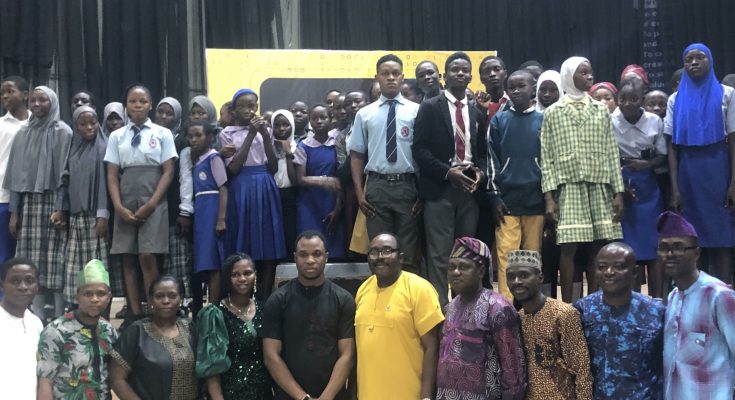The Oyo State government, in collaboration with CodeGarageAfrica, Zeeh Africa, and 386konsult, has trained 1000 students from 10 secondary schools in Ibadan on coding and non-coding tech skills.
According to the organisers, the recent five-day project ─ tagged ‘1000 lines of code’ ─ aimed at achieving a digital revolution across the 11 local government areas of Ibadan.

The Oyo State Commissioner for Education, Science and Technology, Professor AbdulWaheed Salihu ─ represented by the Deputy Director, Ministry of Education, Tayo Stephen ─ said the initiative was a testament to the government’s commitment towards improving education in the state.
“The skills these students have gained will not only benefit them personally but will also contribute to the development of our state,” the commissioner said.
The executive assistant to the Oyo State governor on administrations, Reverend Idowu Ogedengbe, while appreciating the tech firms, the benefitting schools, and the teachers for their participation, stated that the initiative has introduced students in Nigeria to the fundamentals of coding and programming.
“With the growing importance of digital literacy, this initiative has equipped students with essential skills that will empower them for the future,” Ogedengbe added.
The Senior Special Adviser to the governor on Information, Communication Technology and ICT, Bayo Akande, said this kind of initiative has been organised in the past for computer teachers across public schools in Ibadan.
ALSO READ: Rivers: Court declines push to bar Fubara from spending govt funds
Akande further said the initiative was meant to introduce the students to coding at a young age, adding that the world revolves around technology and programming.
“I am impressed with the dedication and enthusiasm shown by the students. This programme will continue, reaching more students across other local government areas in the state,” he added.
The chief executive officer (CEO) of Zeeh Africa, David Adeleke, said the initiative is a vision he is glad to be part of.
Adeleke stated that they not only trained students but also empowered them to dream big, think boldly, and redefine what is achievable.
“This initiative extends beyond classrooms. It is a catalyst for change that will resonate across communities, industries, and beyond. The feedback from the students has been positive, and many have expressed newfound interests in pursuing tech careers,” he said.
Hikmat Sanusi, one of the benefitting students from Wesley College, said the initiative was an eye-opener for her, adding, “I am excited to continue learning and applying these skills.”







